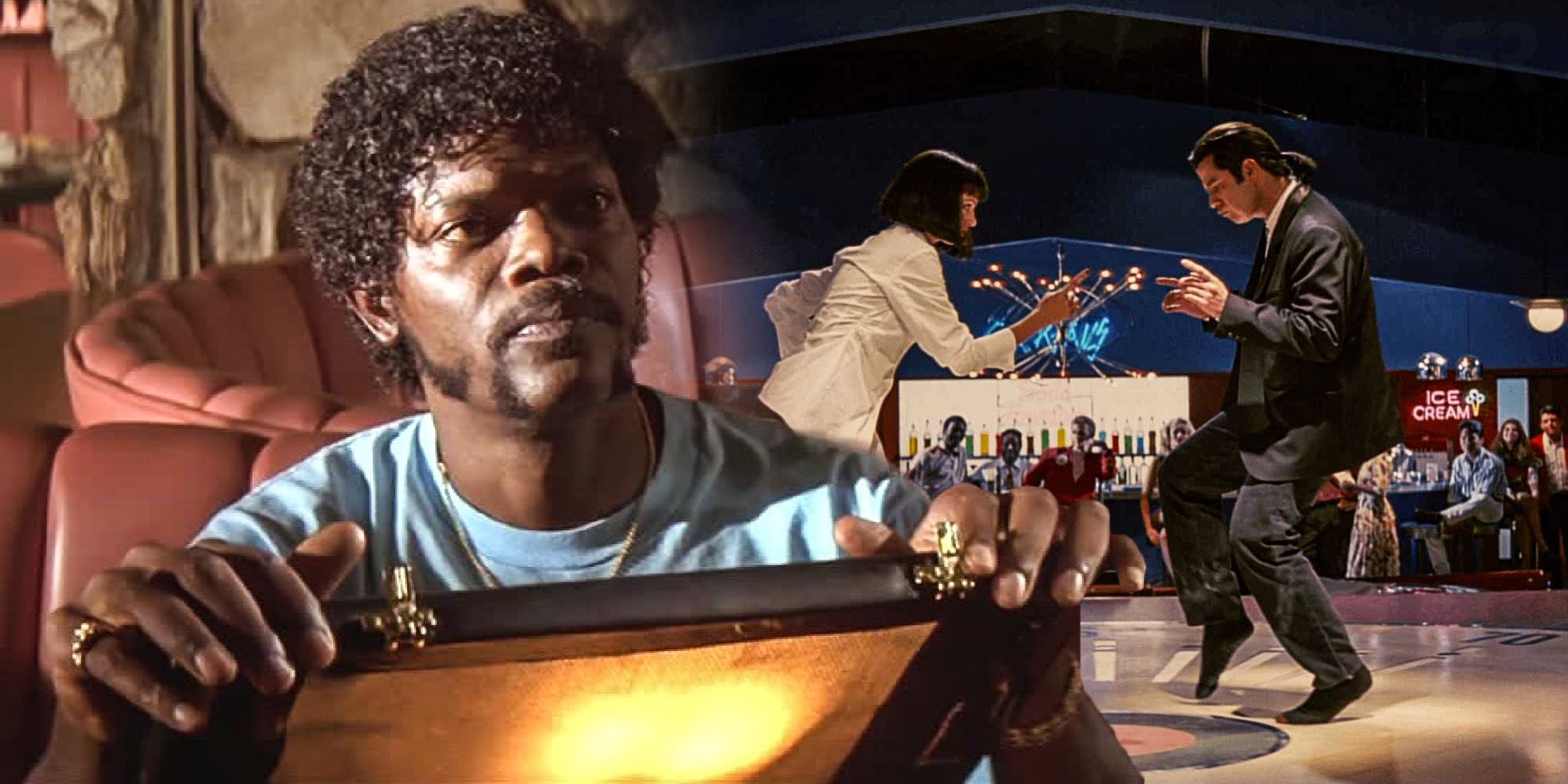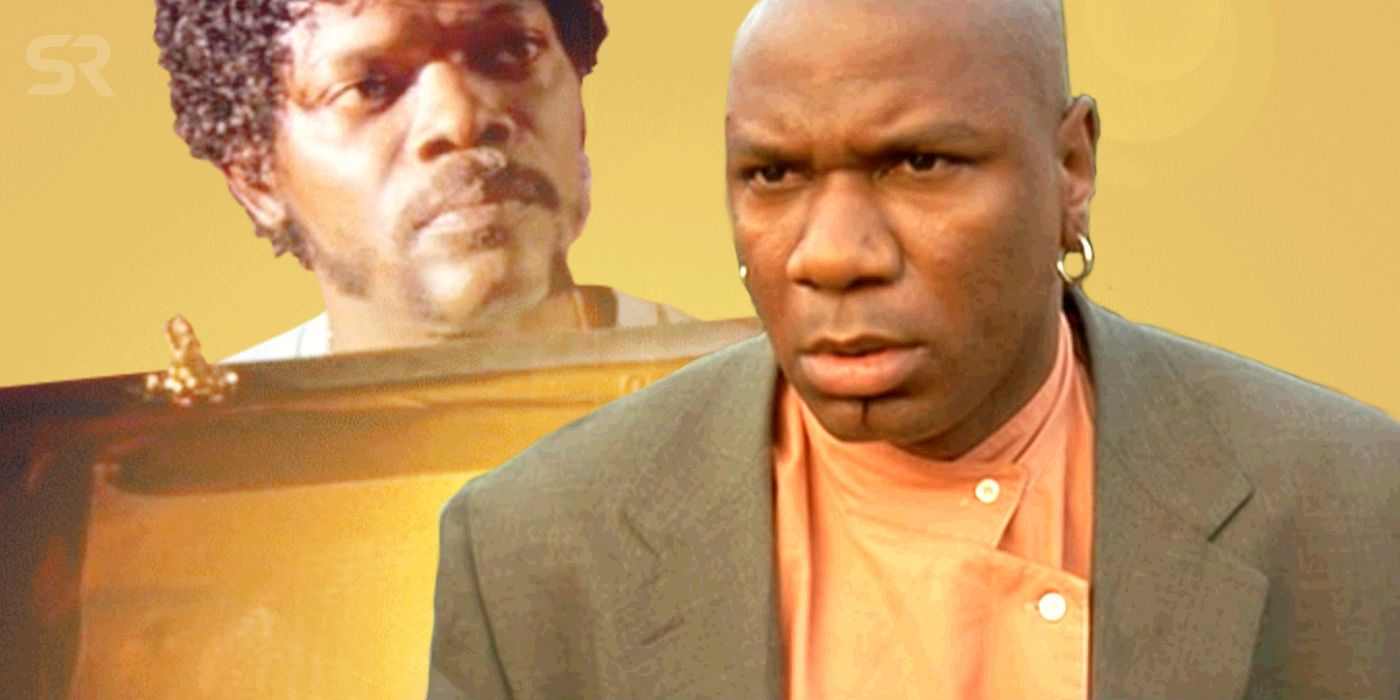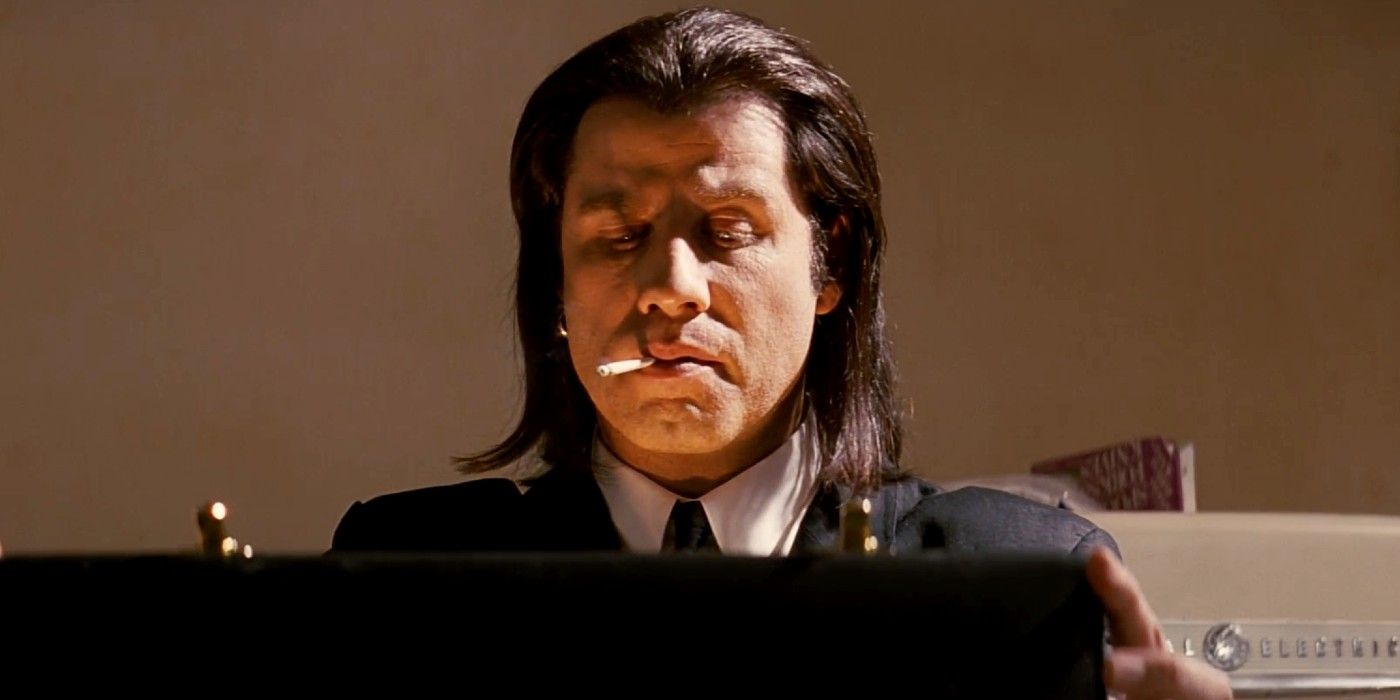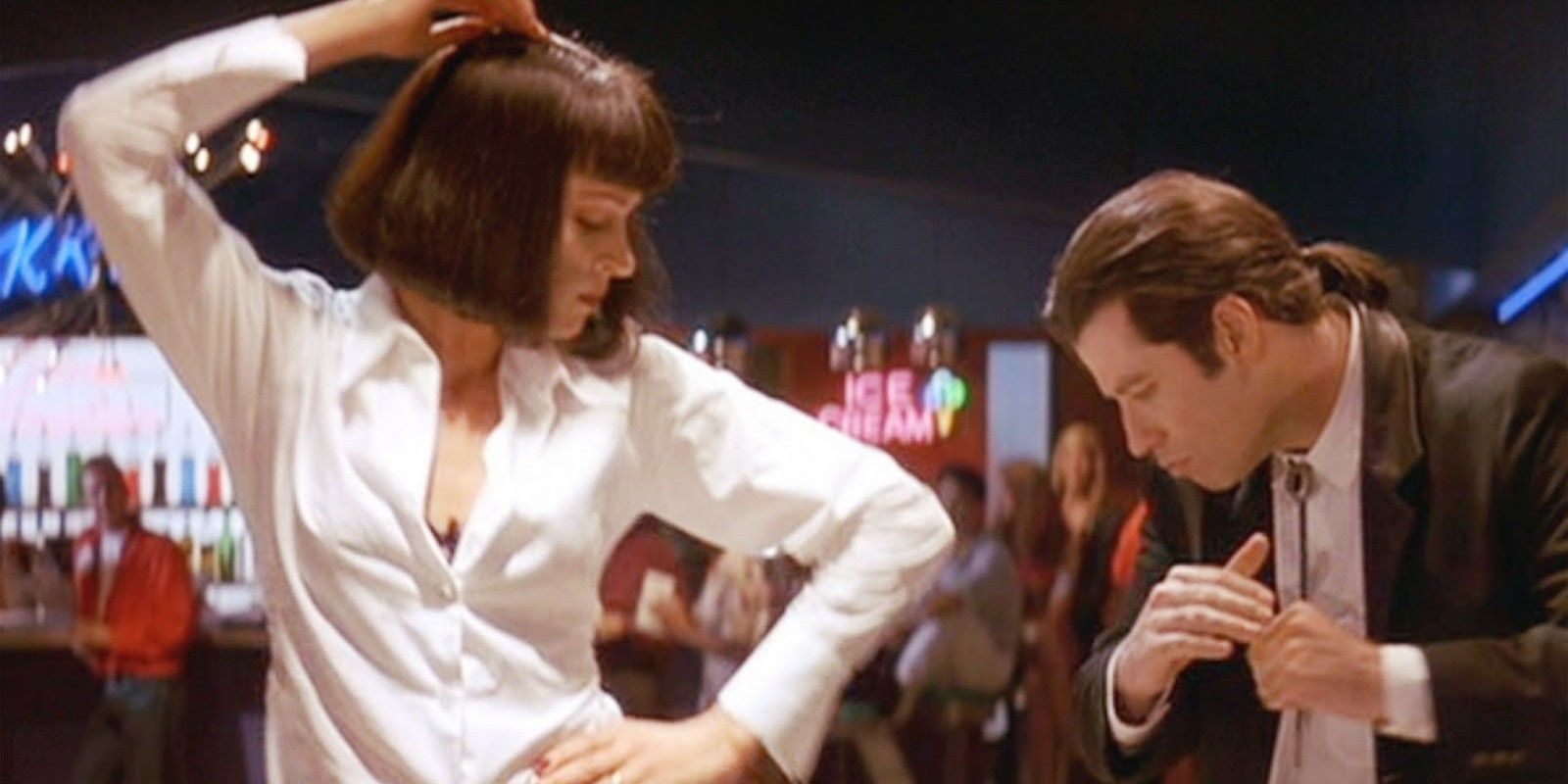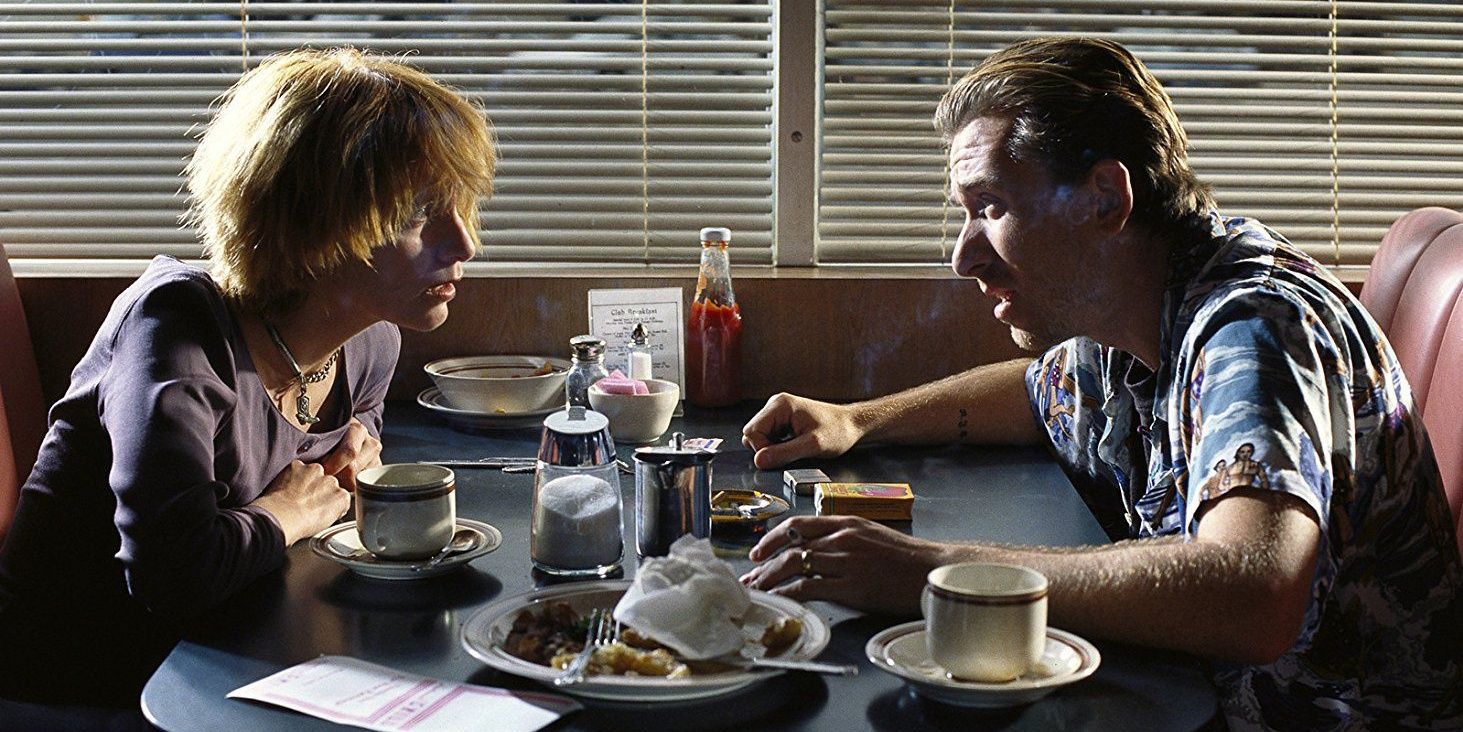Pulp Fiction has made way for a variety of theories that go from its place in the Tarantino movie universe timeline to the real meaning of its characters and even some objects, as is Marsellus Wallace’s mysterious briefcase. Among those is a theory that connects the characters and the briefcase to the history of rock & roll, offering a different interpretation of Pulp Fiction. Quentin Tarantino’s career as a filmmaker began in 1992 with the crime movie Reservoir Dogs, which was a critical success and introduced viewers to Tarantino’s style, but his big break came two years later with Pulp Fiction.
Also a crime movie, Pulp Fiction follows various interconnected stories in a non-linear style, with hitmen Vincent Vega (John Travolta) and Jules Winnfield (Samuel L. Jackson), their boss Marsellus Wallace (Wing Rhames), his wife Mia (Uma Thurman), and boxer Butch Coolidge (Bruce Willis) as the leads. Pulp Fiction was a big commercial and critical success and has been praised for its unconventional structure, pop culture references, and story, and it’s often regarded as Tarantino’s masterpiece. Thanks to its cultural impact, it’s not surprising that Pulp Fiction hasn't been safe from fan theories, especially those looking to solve some of the movie’s mysteries, particularly the one about Marsellus’ briefcase.
Due to its non-linear narrative and peculiar characters, Pulp Fiction has also been interpreted in many ways, each one offering a new perspective of the story – and as it turns out, there’s a fan theory that not only shares a different way of looking at the characters and their stories, but also tries to explain the real meaning of the mysterious briefcase, and it’s all connected to rock & roll.
Pulp Fiction: What’s In Marsellus Wallace’s Briefcase?
In the segment centered on Vincent and Jules, the audience follows the two hitmen as they arrive at an apartment to retrieve a briefcase for Marsellus, which was in the hands of one of his business partners. Vincent finds the briefcase and opens it to check that everything is in order, but the contents of the briefcase are never shown, and instead there’s a glowing light coming out from it. Vincent gets lost in whatever the source of the light is, and his trance is broken by Jules asking “we happy?”. In the final segment of the movie, where Vincent and Jules cross paths with Pumpkin (Tim Roth) and Honey Bunny (Amanda Plummer) at the dinner, Jules shows what’s in the briefcase to Pumpkin, who has a similar reaction to Vincent’s, describing whatever is in it as “beautiful”.
This has made way for a number of theories on what’s on the briefcase, fueled by Tarantino saying there’s no explanation, and it’s just a MacGuffin (plot device). Of course, that hasn’t stopped fans from coming up with various possible answers to the mystery, and the most popular one says the briefcase contains Marsellus’ soul. At some point prior to the events of Pulp Fiction, Marsellus sold his soul to the devil, and by the time the movie begins, he wants to get it back. This came with a price, which is why there’s so much violence in the movie, including Vincent’s death. This theory is supported by the briefcase’s lock code being 666 and the bandage on the back of Marsellus’ head.
Another theory says it contains the diamonds from the heist in Reservoir Dogs. Although the original plan was for the briefcase to contain diamonds (not exactly those from Reservoir Dogs), there’s not much evidence to support this theory, so the contents of Marsellus’ briefcase continue to be open to interpretation.
Theory: The Pulp Fiction Briefcase Represents Rock & Roll
Another, perhaps lesser-known, theory suggests the briefcase represents rock & roll, and so Pulp Fiction tells the history of rock & roll. This interpretation originated on Reddit in a now-deleted post, but copies of it can be found around the internet. The author suggests that the briefcase represents rock & roll, and Marsellus stands as the origin of rock music in America, which is why he wants to get it back. The briefcase had been in the hands of “the nerdy white guys” trying to steal it, who represent “greedy record producers” that profited off of “black music” and didn’t treat black musicians as they deserved. With the briefcase representing rock & roll, the author of the theory gives each character either a genre or a musician, in a way in which Pulp Fiction ends up telling the history of rock & roll, how other genres were influenced by it, and the importance of it in music history.
How Pulp Fiction’s Characters Represent Music
If Marsellus represents the origin of rock music in America, then Jules Winnfield is Chuck Berry and Vincent Vega is none other than the king himself, Elvis Presley. The author explains that, when one of Brett’s men (played by Alexis Arquette) shot multiples times at Jules and Vincent and didn’t hurt them, was because “legends of music can never die and will be around forever”, with Jules later realizing this.
Then there’s Pumpkin and Honey Bunny, who according to the author are the British invasion, which was influenced by the blues and pop music. When Jules lets them take his money but not his iconic wallet, this is a metaphor for him letting them “steal and be influenced by older music” but they can’t take “a legend’s style”, represented by the wallet. Other Reddit users have expanded on the theory by suggesting Pumpkin and Honey Bunny are actually Sid Vicious and Nancy Spungen, given their intense relationship and reactions to everything around them, and others have added that Mia Wallace represents the disco era of music, due to her dancing style, use of cocaine, and how she uses the word “disco”.
Back to the original theory, it also gives Butch a character in the history of rock & roll. Butch is the “new and interesting rock music” that kept being produced but that Marsellus didn’t like. Maynard and Zed, the men that kidnapped Butch and Marsellus after they ended up in a pawnshop, fighting, represent country music, which “stole” from blues (which is Marsellus) and other music. After Butch saves Marsellus and they escape, Marsellus lets Butch live and go, representing Marsellus accepting that there “will always be new music and there’s nothing he can do to stop it”. Last but not least, the gold watch that belonged to Butch’s father is a representation of how time moves on, “more new music will continue to be made”, and how new artists will be influenced by their predecessors.
The Problems With The Pulp Fiction Rock & Roll Theory
The Pulp Fiction rock & roll theory is a different and fun interpretation of the movie and its characters, and while Tarantino is cultured in music and pays a lot of attention to the soundtracks of his movies, it’s unlikely that Pulp Fiction is a sneaky way of telling the history of rock & roll. Although there are a few coincidences, such as Vincent and Elvis dying in a bathroom, there are various inconsistencies in the theory and elements that don’t make much sense, particularly Butch’s story. Some Reddit users have pointed out how selective the author was with the characters, while some others have added to it by giving their interpretations of characters like The Wolf and Mia Wallace, which even though expand the original theory, they also make it more confusing. Others have pointed out that the briefcase being rock & roll and Marsellus “the older forms” don’t add up, and it would also leave the big question of how his relationship with Mia Wallace plays into all this.
Of course, it’s a theory shared for mere fun rather than to be taken as a “serious” or “real” interpretation of Pulp Fiction, which in the end will always be interpreted differently depending on the viewer and their own experiences. Ultimately, the contents of the briefcase will continue to be open to interpretation, which also allows for different interpretations of Pulp Fiction as a whole, and if you are looking for a different viewing experience, you might want to keep the “rock & roll theory" in mind next time you watch the movie.

